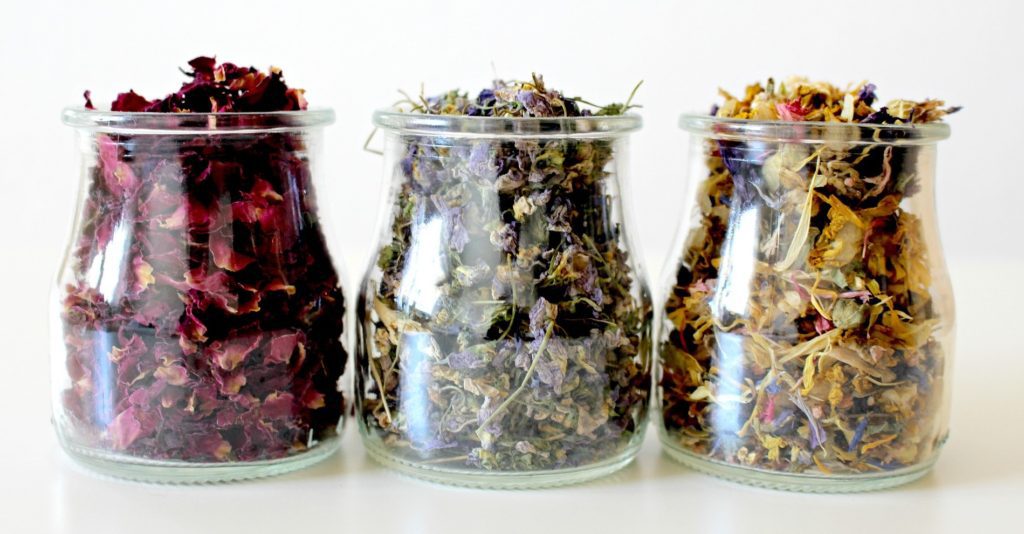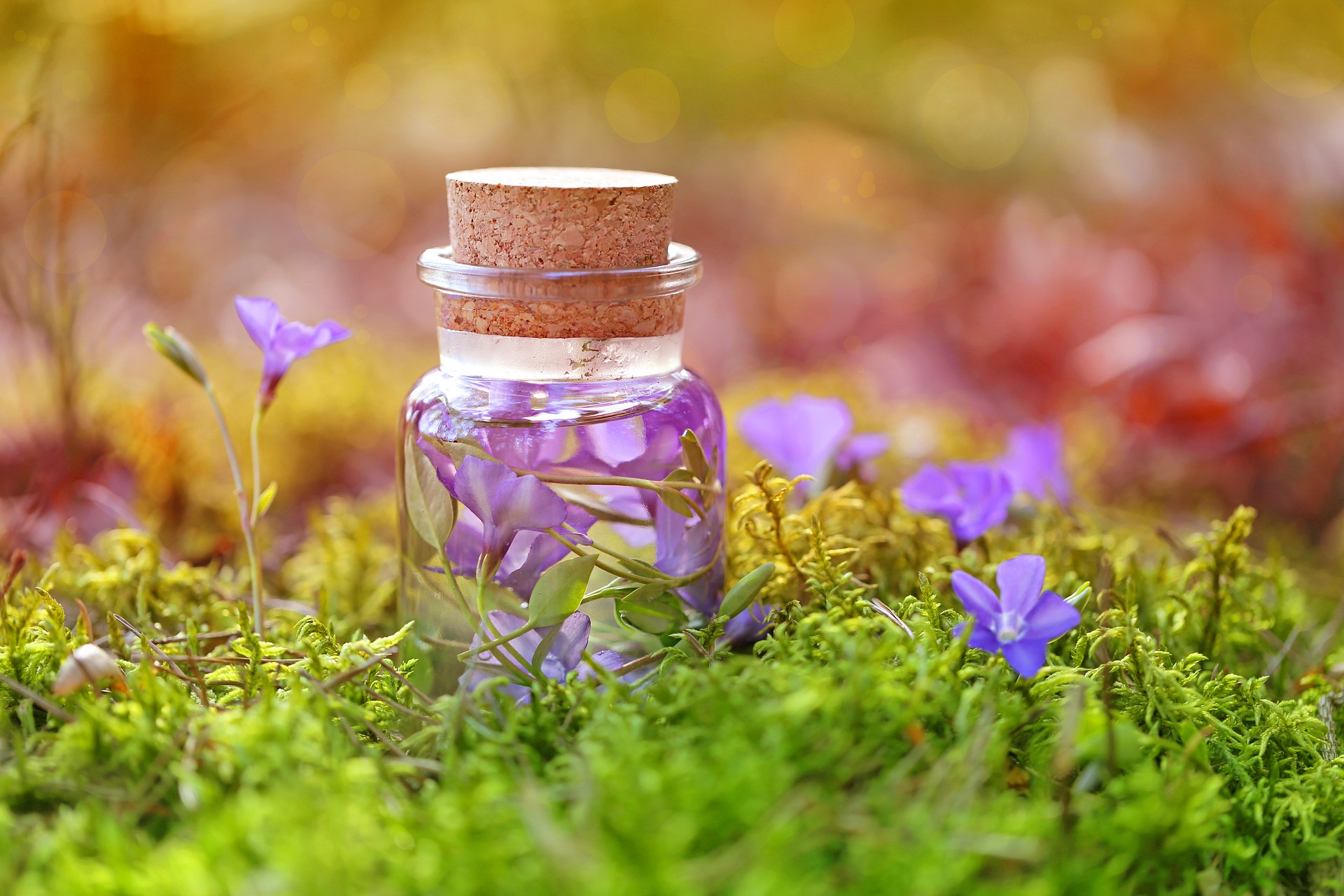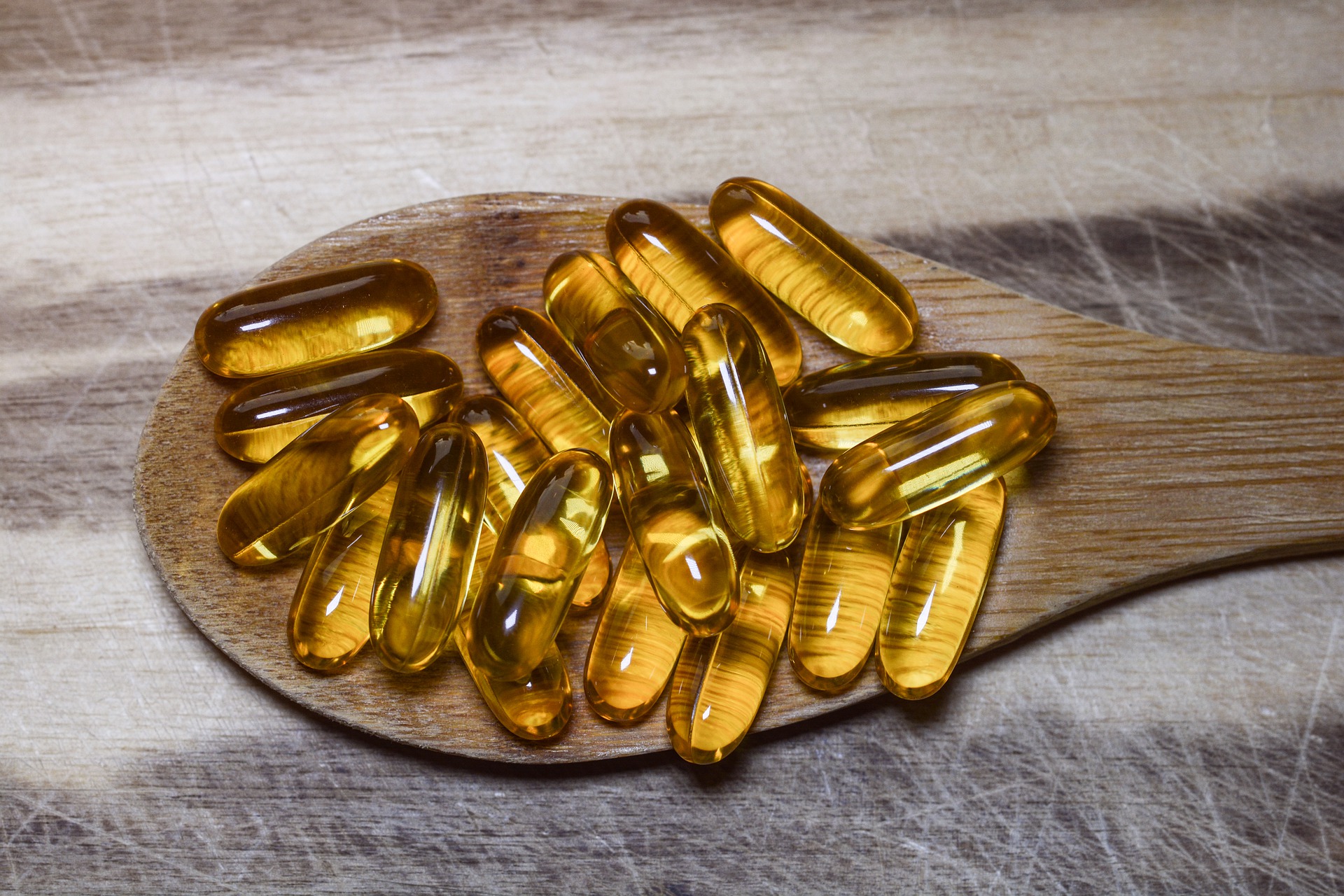
No gimmicks here, there is no magic cure for anxiety. Although with the right natural anxiety supplements, you may begin to transform that fierce hyena in your mind into a pesky house cat.
Natural anxiety supplements aim to help the body produce or alter the resources it needs to restore balance.

This article covers herbs, essential oils, vitamins, minerals, amino acids and fatty acids that can be used to do just that and reduce anxiety. These natural anxiety supplements coupled with good nutrition, physical exercise and positive mental practices can transform the mind into your utopia.
Herbs for Anxiety
Herbs have been used for thousands of years, yes thousands, in Eastern medicine to naturally treat anxiety and stress.
Western science is slowly beginning to understand how herbs can help relieve stress and relax the body. Scientists continue to conduct clinical trials in an attempt to determine the biological mechanisms of herbs.
Much of this research is in the early stages and has less funding. This means solid data explaining how or if an herb works can be difficult to find. I have found that personal exploration in a safe environment has taught me more than anything I can read online.
How an herb makes you feel may be unique to you. Below is simply an outline of some theories of how these herbs may work in the human body.
Herbal substances generally have fewer side effects and are a non-addictive alternative to pharmaceuticals. They are commonly consumed through the dried herb, tea, powder, liquid extract, tinctures, and capsules.
Another great resource that focuses specifically on herbs and includes the how-to of each herb can be found here.
10 Best Herbs for Anxiety
1. Ashwagandha
(withania somnifera; indian ginseng, winter cherry)
Ashwagandha is known as an adaptogenic herb, which means it calms the mind and body by adapting the body’s biological response to stress. It is an influential herb that is used extensively in Ayurvedic medicine.
Learn more in-depth benefits of ashwagandha here and more about the best ashwagandha products here.
2. Valerian Root
(Valeriana officiaonalis)
A sedative that is widely used as a sleep solution for insomnia. Valerian is also considered an anxiolytic herb, which simply means it reduces anxiety. GABA effects from valerian may be a major reason for its calming ability. What is GABA? It is a brain chemical that lowers anxiety and is significant to anxiety symptoms.
If you are interested in learning more about valerian, this article is a great place to start.
3. St John’s Wort
(Hypericum perforatum; Kalamath Weed)
A yellow flowering plant that may increase serotonin in the brain and acts as a natural mood enhancer. Serotonin regulates feelings like happiness and anxiety. Too much or too little serotonin can be a root cause of anxiety. If you are on the tail end of the spectrum, this plant may help boost your levels.
Want to learn more about St John’s wort? This article does a deep dive.
4. Ginkgo Biloba
Derived from a tree, Ginkgo Biloba extract may help to reduce the stress hormone cortisol. This herb differs from many other anxiety herbs as it is a slight stimulant. It may increase blood flow to the brain which helps with cognitive ability.
5. Kava
(Piper methysticum)
Kava is traditionally used for ceremonies in the Pacific Islands. It may be effective in treating anxiety due to its intense calming effects. There are arguments that associate kava and liver damage, however, if Kava is consumed in an appropriate dosage and not mixed with other products, adverse effects are likely avoided.
6. Chamomile
(Matricaria recutita, German Chamomile; Anthemis nobilis, Roman Chamomile)
Both German and Roman chamomile are considered mild sedatives. They are well known for their anti-anxiety uses when binding to various receptors in the brain. The binding molecules induce a heavy, calm feeling.
If you want to explore more of what chamomile can do for you, this article goes into more depth.
7. Passion Flower
(Passiflora incarnate; maypop, apricot vine)
This South American beauty encourages relaxing effects and acts as a sedative to calm the mind and body.
8. Lemon Balm
(Melissa officinalis; common balm, balm mint)
Lemon balm is a sedative herb that inhibits enzymes that cause symptoms of anxiety.
9. Roseroot
(Rhodiola rosea; arctic root)
Rhodiola rosea may increase mood by stimulating receptors for dopamine and serotonin, which are involved in mood regulation.
10. Hops
(Humulus lupulus)
These hops are the same ones that make your favorite beer but are not fermented. Hops are a sedative herb that contains a chemical that lowers stress and reduces symptoms of insomnia.
Many of these herbal natural anxiety supplements do interact with other medications so talk to your doctor before consuming especially if you are on other medications (even birth control) or are pregnant.

Essential Oils
Calming essential oils are extracted from different plants all over the world. They are absorbed into the bloodstream typically through the skin or inhalation.
The main two ways that essential oils can be used for anxiety are by adding them to bathwater or using them in aromatherapy, where the oil is diffused into the air.
If you are interested in learning more specialized information about essential oils specifically, this article is a great place to explore.
Top Essential Oils for Anxiety
1. Lavender
(Lavandula angustifolia, English Lavender)
Lavender has promising studies that show it to be effective by leading researchers for alleviating anxiety. The positive results of reduced anxiety are common amongst clinical studies, these trials may also include taking lavender orally.
If you are interested in learning more about lavender, check out this article or download the lavender guide.
2. Rose
(Rose damascena)
Rose essential oil shows true promise in its ability to offer relief with numerous studies that show relaxation and anti anxiety effects.
Rose oil has an expensive extraction process. If you find this oil cheap, it is most likely tampered with and will not produce the therapeutic effects you are looking for.
3. Ylang ylang
(Cananga odorata)
Ylang-ylang extract contains a compound found in multiple oils on this list. This compound has a strong potential to act as a sedative and calm the nervous system.
4. Clary Sage
(Salvia sclarea)
Clary sage is in the same plant family as Lavender and shares the anxiolytic characteristics. Studies show that it may have a strong anti-stress effect in the brain.
5. Jasmine
(Jasminum officinale, Jasminum officinale forma grandiflorum)
Jasmine is basically the queen of fragrances. It also shows evidence through brain scans that it can soothe anxiety and promote rest.
6. Frankincense
(Boswellia carterii, Boswellia serrata)
Frankincense is a nice change of pace for anxiolytic oils since it is not a sedative. It instead may relieve stress while subsequently improving concentration.
7. Vetiver
(Chrysopogon zizanioides, Vetiveria zizanioides)
Vetiver has been used for thousands of years in Indian culture. It also has confirmed studies of its anxiolytic properties.
8. Bergamot Orange
(Citrus bergamia)
Bergamot Orange has a mix of sedative and energizing components. This gives it unique characteristics of being calming yet uplifting in nature.
9. Chamomile
(Anthemis nobilis; Roman Chamomile)
The chamomile plant made an appearance on the herbs list and can also be used as an essential oil to decrease anxiety levels.
10. Lemon
(Citrus limon)
Lemon essential oil has a fresh and cheery aroma while offering a positive and calming perspective.

Vitamins, Minerals, Amino and Fatty Acids
When the body is imbalanced, anxiety can turn ugly. The body begins to send confusing and overwhelming signals.
Nutritional deficiencies are more common than many think and they can greatly affect how somebody feels. And there are massive amounts of evidence supporting the benefits of vitamins and minerals on the body.
Vitamins and minerals are made up of nutrients that the body uses to do…well, everything.
Amino acids play a huge role in transporting and storing nutrients. They supply the body with what it needs when it needs it. Fatty acids help the brain have a smooth signaling process.
If you want a more hyper-focused look at vitamins and minerals specifically, this article is the place to explore and this dosage chart outlines the exact quantities needed.
Natural Vitamins for Anxiety
1. Vitamin C
(Ascorbic acid)
As an antioxidant, vitamin C may help fight nervous system damage caused by oxidative stress. High levels of oxidative stress is common in those who suffer from anxiety.
2. Vitamin D
There is a long standing relationship between vitamin D deficiency, depression and anxiety. Receptors for vitamin D in the brain may affect proteins that play a role in mood and behavior.
3. Vitamin B
Vitamin B comes in eight different forms. Vitamin B deficiency can cause anxiety and depression. It is important to have this vitamin in full supply which often comes in the form of a B complex vitamin.
4. Vitamin E
Vitamin E is a powerful antioxidant that may be more effective at treating anxiety then commonly used antidepressants.
Best Minerals for Anxiety
1. Magnesium
Magnesium may help the brain regulate high cortisol levels and minimize other anxiety-causing hormones.
For more information on magnesium, and the best form of magnesium for anxiety – check out this article.
2. Selenium
Selenium is the main component to a major antioxidant in the body. Antioxidants help reduce oxidative stress which is linked to anxiety.
Best Amino Acids for Anxiety
1. GABA
(Gamma-Aminobutyric Acid)
GABA is a non-essential amino acid. It is the primary neurotransmitter that inhibits excited neurons. GABA is central to the regulation of anxiety in the brain. Learn more about low GABA levels here.
2. Theanine
(L-Theanine)
Theanine is a non-essential amino acid that has a huge impact on multiple brain functions that promote relaxation. It is commonly found in tea leaves.
3. Tryptophan
(L-Tryptophan)
Tryptophan is an essential amino acid that is required to build serotonin. Low serotonin levels are linked with anxiety, which means you may need more of this guy in your life.
4. Tyrosine
(L-Tyrosine)
Tyrosine plays a part in the creation of the mood-regulating neurotransmitter dopamine and can help the brain function in high-stress situations. Tyrosine can help increase dopamine naturally in those with low dopamine levels.
5. Lysine and Arginine
(L-Lysine and L-arginine)
Studies show that lysine and arginine taken in combination may have the ability to reduce anxiety and regulate stress response.
6. Phenylalanine
(L-phenylalanine)
Phenylalanine is an essential amino acid that is transformed into tyrosine.
Fatty Acids for Anxiety
1. Omega 3 Fatty Acids
Omega 3 fatty acids show clinical evidence supporting their benefit to mood and anxiety disorders. They help regulate multiple brain functions that play a big part in anxious behavior.
There is so much information on omega 3 fatty acids for anxiety, we dedicated a whole article to it here.
To Sum it Up…
Millions of us across the world suffer from anxiety disorders and mild anxiety that threaten our quality of life on a daily basis. No magic cure does not mean there are not tools to build a more positive mind. Natural anxiety supplements and essential oils are a great way to help the mind promote a calming environment.
The mind and body need vitamins, minerals, amino acids, and fatty acids. Be sure you are getting your daily value to give yourself the best resources to function optimally – either from your diet or supplements. Herbs and essential oils are extra tools to help relax an anxious mind.
Once you start to cultivate a positive calming mental environment it allows you to truly experience life instead of wrestling with your own thoughts. A natural approach eliminates the possibility of addiction and is a safe, practical route to treating the everyday symptoms of anxiety.



